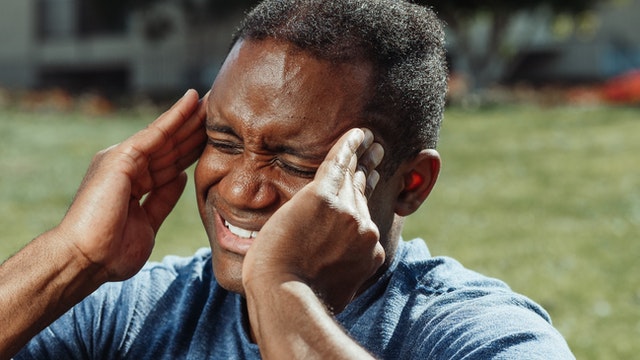If you suffer from pain or clicking in your jaw, it’s possible that your jaw pain might actually be the culprit behind your migraine headaches. Your temporomandibular joint (known as the TMJ) is what connects your head and jaw, allowing you to chew and speak. When you suffer from a disorder that affects the TMJ, the condition can actually cause migraines or worsen your headaches. In this post, we’ll be discussing the symptoms and causes behind this disorder as well as TMJ migraine relief.
What are the Symptoms and Causes of TMJ Disorders?
Your symptoms can include:
- Pain, aches, swelling, or stiffness in your jaw or neck.
- Lockjaw, which is limited jaw mobility.
- Popping or clicking sounds when you open your mouth.
You may also experience certain symptoms that don’t directly affect your jaw, such as:
- Dizziness.
- Hearing loss.
- Pain in your shoulders.
- Grinding or clenching teeth.
A variety of factors can cause TMJ disorders, including stress, jaw injuries, poor posture, arthritis in the jawbone, and hormone changes.
Why Does TMJ Cause Migraines?
When your chewing muscles become stiff, sore, or tense, the shooting pain often travels from your jaw to your cheekbones. From the cheekbones, the pain can then spread to the top of your head. This is what we know as a TMJ migraine.
The pain frequently gets worse when you try to move your jaw, such as when you eat or talk.
How Do I Get TMJ Migraine Relief?
Your first step is to go to your primary care provider or family health doctor. They can refer you to a neurologist who specializes in migraine headaches.
A neurologist can administer physical exams and imaging tests as well as assess your medical history to come to a diagnosis. They will help you identify headache triggers, prescribe medication, and prescribe lifestyle changes. In some cases, you might need muscle relaxants to reduce the tension in your jaw.
You may also receive referrals to go to the dentist or physical therapy if teeth clenching or poor posture are involved.
What Can I Do At Home?
Besides medication, there are a few things you can do at home to help relieve your head and jaw pain. One thing you can do is reduce your stress — schedule time for relaxation, get a full eight hours of sleep, eat softer foods, and engage in breathing exercises.
When your TMJ pain flares up, you can use a hot or cold compress to relieve the discomfort.
You might also choose to stop a few habits, such as frequent chewing gum, chewing on pens or pencils, and nail biting. These habits can cause your jaw or head pain to flare up.
See a Neurologist Today
You don’t need to continue with debilitating migraine pain any longer — you deserve to be able to work and go about life without pain in your head and jaw. If over-the-counter medication isn’t working for you, a neurologist focused on migraines will be able to effectively provide you with TMJ migraine relief. For relief, call Dr. Escasena at 305-558-7170.

